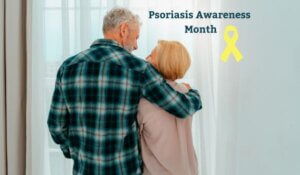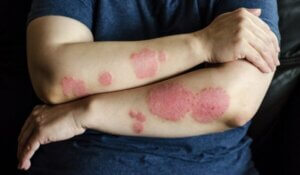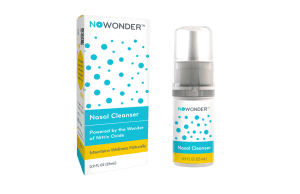 Being stared at was always a normal part of Jonah’s day. Not the “hey, looking good!” kind of attention, but a lingering, hesitant gaze that flicked to the red, scaly patches on his skin–leaving an uncomfortable silence lingering in the air.
Being stared at was always a normal part of Jonah’s day. Not the “hey, looking good!” kind of attention, but a lingering, hesitant gaze that flicked to the red, scaly patches on his skin–leaving an uncomfortable silence lingering in the air.
Psoriasis.
It’s more than just a rash; it’s a constant battle beneath the surface, an autoimmune condition that wages war on Jonah’s body. Interestingly, the worst part for him, at least in his younger years, wasn’t the pain of the inflamed lesions on his skin. It was the looks–namely, looks of fear and disgust whenever someone saw the scaly patches. At best, it is a kind of awkward sympathy. That’s why Psoriasis Awareness Month matters. It’s a nationally recognized month that offers a chance to break the silence and show the world that there’s a living, breathing person behind the red patches. A person I am proud to call my husband. I’m passionate about this because before I got to know Jonah, I didn’t know anything about psoriasis, and that lack of understanding led me to fear getting close to him. I’m pleased to say we’ve both come a long way since then.
That is why I do my best to champion Psoriasis Awareness Month. It’s an opportunity to raise awareness and understanding, help prevent alienation, and build a safe and accepting community where hope and healing abound.
Since 1997, each August, the National Psoriasis Foundation (NPF) has shone a spotlight on psoriasis. The National Psoriasis Foundation (NPF) inaugurated Psoriasis Awareness Month, a leader in advocating education and research funding for psoriasis and psoriatic arthritis.
Raising awareness and knowledge about psoriasis can be extremely helpful for the social wellness of people living with the disease. There are so many misconceptions and untruths about the causes and outcomes of psoriasis, primarily because of its visibility on the skin. Ever since Jonah was a young teenager, he was on the receiving end of myths that insisted that psoriasis is contagious or that he was dirty and had poor hygiene. That kind of constant feedback tends to make even the most confident young person shy away from social contact. Jonah had to push through a lot to become the successful and confident man he is today.
Psoriasis Awareness Month can play an important role in improving the lives of people living with psoriasis, offering the strength of the community to help endure what can be a very difficult and tenacious disease. There is a great need for further education for and from public health care providers and more action from the medical community.
Psoriasis Awareness Month aims to increase knowledge about the condition and further research into its treatment, another primary goal. The NPF has proposed to refocus the month, which is characterized by renaming it to Psoriasis Action Month, turning it into a dynamic and action-driven mission. The theme for 2024 is Set Goals, Take Control, so Psoriasis Action Month focuses on empowering people with psoriasis to take control of their disease.
What is psoriasis?

Psoriasis is a chronic, autoimmune skin condition affecting millions worldwide. It is a complex disorder that involves the immune system, genetic factors, and environmental triggers. The underlying cause of psoriasis is a rapid buildup of skin cells. The outer layer of the skin comprises dead cells that are continuously shed and replaced by new cells growing in the deeper layers. These new cells mature and die as they reach the surface. Every square inch of skin sheds millions of dead cells every day.
In people with psoriasis, the growth rate of new skin cells is much faster than the normal shedding process, resulting in a build-up of excess skin cells that causes scaling and plaques. The affected areas with scales and red patches can be itchy or painful and most often appear on the elbows, knees, scalp, and lower back. They can occur anywhere on the body. Toenails may change color, crumble, come loose from the nail bed, or develop small pits.
As well as outbreaks on the outer skin, psoriasis can affect joints. Psoriatic arthritis combines symptoms of both skin outbreaks and arthritis, with joint pain and swelling in the fingers or toes and inflammation of the tendons and ligaments attached to bones at larger joints such as heels and elbows.
What is the biology behind psoriasis?
An overactive immune system, when inflammatory signals lead to increased production of skin cells, primarily causes psoriasis. The medical community does not fully understand the cause of this immune system action, but it could be a combination of genetics and behavior.
The regular occurrence of psoriasis in families leads us to suspect inheritance. Scientists have identified some suspect genes involved in the immune system. However, inheriting these genes does not automatically condemn a person to a life with psoriasis. Rather, it increases the likelihood of developing the condition, especially when combined with the other contributing factors.
Various lifestyle factors can trigger or exacerbate psoriasis, especially in genetically predisposed people. Common triggers include stress, skin injuries, cuts, or frequent sunburns, infections, and medications. In addition, habits such as smoking and overeating can worsen the condition. Understanding these triggers is crucial for managing psoriasis, as avoiding them can help reduce flare-ups.
What are the symptoms of psoriasis?
There are several types of psoriasis, each with unique characteristics:
- Plaque psoriasis is the most common form. It is distinguished by visible raised, inflamed, red lesions on the outer skin, covered with silvery-white scales.
- Guttate psoriasis is characterized by small, drop-shaped spots, often triggered by bacterial infections like strep throat.
- Inverse psoriasis, which occurs in skin folds, such as under the breasts or in the groin area, causes smooth, red patches.
- Pustular psoriasis features white blisters of non-infectious pus (pustules) surrounded by red skin.
- The most severe form is erythrodermic psoriasis, which leads to widespread red patches, skin shedding, and severe itching or pain.
How does psoriasis impact on daily life?
Psoriasis can lie dormant for long periods and then flare up without warning. This uncertainty creates mental stress and can affect a person’s everyday lifestyle, even without immediate symptoms. When the disease is active, the chronic pain and itching associated with psoriasis can interfere with daily activities and sleep.
The visible nature of the condition can lead to social stigma, impacting self-esteem and mental health.
Treatment options for psoriasis
There is no cure for psoriasis, but some treatments can help people manage the symptoms and better control their lives. These fall into three major categories:
- Topical treatments
- Systemic medications
- Phototherapy.
The main classes of pharmaceuticals that treat psoriasis are:
| Type | Treats | Action | Drugs |
| Topical creams and ointments | Mild psoriasis | Tried at the beginning for mild to moderate psoriasis. Can be bought without a prescription, after consulting with a doctor or pharmacist. | Axera |
| Emollients | Mild psoriasis, scalp psoriasis | OTC moisturizing treatments are applied directly to the skin to reduce water loss and cover it with a protective film. | |
| Steroid / Corticosteroids | Mild to moderate psoriasis in most areas | Reduces inflammation, slows the production of skin cells, and reduces itching. | Topisalen, Elocom, |
| Vitamin D analogues | Mild to moderate plaque psoriasis | Used with or instead of steroid creams to slow the production of skin cells and reduce itching. | Donovex or Dovobet |
| Retinoids (modified forms of vitamin A) | Severe cystic acne or nodular acne,, Erythrodermic psoriasis | Reduces the thickening of the skin, plaque formation, and scaling | Accutane, Soriatane, Tazorac |
| Antimetabolites | Erythrodermic psoriasis that doesn’t respond well to other treatments | Lowers the activity of the immune system | Methotraxate |
| Immuno- suppressants / DMARDs |
Erythrodermic plaque psoriasis, inverse psoriasis | Reduces inflammation, lowers the activity of the immune system | Protopic, Otzela, |
Conclusion
Psoriasis Awareness Month is coming in August. Join the worldwide effort to bring the condition into focus for people living with scaly patches from psoriasis, as well as for the scientists and doctors who can make a difference in developing better treatments.













